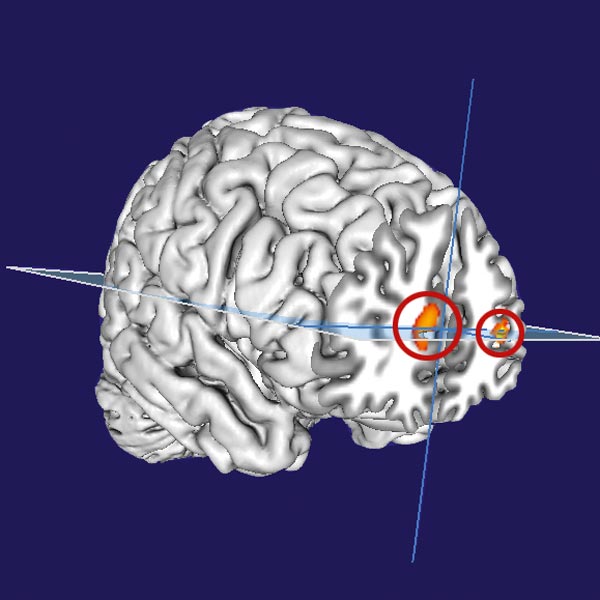

In lucid dreamers compared to other people, the prefrontal cortex enabling self-reflection is bigger.
MPI for Human Development
Some people know the phenomenon of lucid dreaming, a state of awareness during which they are conscious of dreaming. Sometimes, the dreamers can even play an active role in their dreams. Most of the lucid dreamers, however, experience lucid dreams only a couple of times a year and only very few nearly every night.
Undoubtedly, the idea to control one’s dreams and to live out there what’s impossible in real life, like e.g. flying, is tempting. Internet forums and blogs are full of instructions and tips on lucid dreaming. But how can some persons dream lucidly and others not? Is lucid dreaming connected with the human capability of self-reflection – the so-called metacognition?
Although this relationship seems obvious, it was so far unclear whether lucid dreaming, i.e., being aware of dreaming while dreaming, and metacognition, the knowledge of one’s knowledge and thinking, are indeed related to each other.
Using magnetic resonance imaging (MRI), neuroscientist from the Max Planck Institute for Human Development in Berlin together with their colleagues from the Max Planck Institute of Psychiatry in Munich could now demonstrate this connection for the first time when comparing the brain structures of 31 frequent lucid dreamers to those of 31 participants who never or only rarely have lucid dreams.
The scientists discovered that the brain area controlling conscious cognitive processes, i.e., the anterior prefrontal cortex, is larger in lucid dreamers. The same cortical area is also important for metacognition. The differences in volumes between lucid dreamers and non-lucid dreamers in this brain area suggest that lucid dreaming and metacognition are indeed closely connected. This theory was supported by brain images taken when subjects were solving metacognitive tests while being awake. These images demonstrate that the activity in the anterior prefrontal cortex was higher in lucid dreamers.
“Next, we want to know whether metacognitive skills can be trained,” states Elisa Filevich, post-doc in the Center for Lifespan Psychology at the Max Planck Institute for Human Development. “Our study indicates that self-reflection in everyday life is more pronounced in persons who can easily control their dreams.” To examine whether training positively influences metacognition, the researchers intend to train test persons in lucid dreaming in a follow-up study.
Background Information
Original Publication
Filevich, E., Dresler, M., Brick, T.R., Kühn, S. (2015). Metacognitive Mechanisms Underlying Lucid Dreaming. The Journal of Neuroscience.
doi: 10.1523/JNEUROSCI.3342-14.2015
Max Planck Institute for Human Development
The Max Planck Institute for Human Development was founded in 1963 in Berlin and is an interdisciplinary research institute dedicated to the study of human lifespan development and education. The Institute is part of the Max Planck Society, a leading organization for basic sciences in Europe.
https://www.mpib-berlin.mpg.de/en/media/2015/01/lucid-dreaming-and-metacognition…












